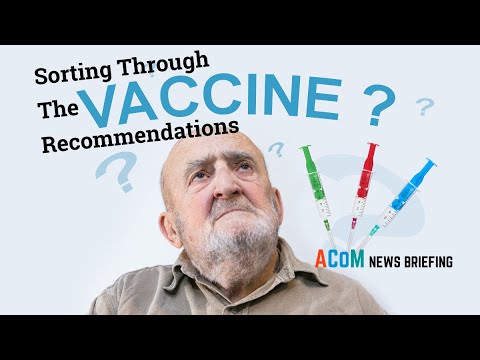Vidya Sethuraman
India Post News Service
American Community Media held an online briefing on Sep 26th, focusing on the latest vaccination recommendations. The new recommendations issued by the Advisory Committee on Immunization Practices (ACIP) under the federal Centers for Disease Control and Prevention (CDC) on the 18th and 19th have triggered widespread concerns in the medical community.
The administration is continuing its push to revise federal guidelines to delay the hepatitis B vaccine newborn dose for most children. This comes despite a failed attempt to do so at the most recent meeting of the Centers for Disease Control and Prevention’s Advisory Committee on Immunization Practices. Many states have announced that they will not adopt the ACIP guidelines and will instead set up their own groups to formulate standards. The four experts present at the meeting unanimously expressed concern about the chaotic situation.
“Hepatitis B is sexually transmitted. There’s no reason to give a baby that’s almost just born hepatitis B. So I would say wait till the baby is 12 years old and formed and take hepatitis B,” President Trump said. Hepatitis B is a highly infectious virus that attacks the liver and is transmitted through contact with infected bodily fluids, including blood. It can also be passed from mother to baby.
Dr. Maurizio Bonacini, clinical professor at the University of California, San Francisco and CEO of the Mission Gastrointestinal and Hepatology Center, pointed out that the ACIP recommendation to delay the hepatitis B vaccine until the age of 12 is contrary to long-standing medical consensus. He stressed that the main route of hepatitis B infection is viral infection from mother to child, rather than sexual behavior or drug addiction. If newborns are not vaccinated immediately, 90% will carry the virus for life, increasing the risk of cirrhosis and liver cancer. He gave the example of Taiwan’s implementation of neonatal vaccines as early as the 1980s, which significantly reduced the incidence of liver cancer among young people, and similar results were achieved among the Alaska Natives in the United States. Therefore, it is crucial to maintain the policy of vaccinating the children at birth.
Dr. Yvonne Maldonado, Professor of Pediatrics and Infectious Diseases at Stanford University and a former ACIP voting member, talked about the importance of measles, mumps, rubella and chickenpox vaccines. She reminded the public that measles is extremely contagious and claimed hundreds of lives every year in the past; mumps not only causes swelling of the cheeks, but can also lead to meningitis, deafness and infertility. She said that the MMRV vaccine has more than 90% protection, and most of the side effects are mild fever or rash. She also warned that if the current low coverage rate is extrapolated, the United States may see another measles pandemic within five years, and polio may return within ten years.
The CDC estimates 2.4 million people in the U.S. have hepatitis B and half do not know they are infected. The disease can range from an acute, mild infection to a chronic infection, often with few to no symptoms. The disease has no cure and, if left untreated, can lead to serious conditions like cirrhosis, liver failure, and liver cancer later in life.
Also Read: US formally recommends Pfizer COVID-19 vaccine for children aged 5-11







